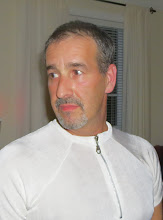
Marriage. Interesting what comes to mind when someone mentions the word. Pictures of perfect nuptials, expensive meals, jet setting honeymoons, flashing diamonds, caterers, photographers, musicians, etc. For most people the reality is somewhere between the glamorous, made for prime time version and a trip to the local Justice of the Peace. Beyond the clergy and the religious cloak this institution is shrouded in, lies what a marriage truly is. Strip away all the decorations, the guest list, the personal vows and what is left? A contract. Not that exciting is it? A contract between two consenting adults that wish to support one another for the rest of their life's. This contract also carries 1138 special provisions attached to it that governs, defines and expands upon the simple "I do". It touches every part of their lives from that moment on. Health care decisions are explicitly deferred to the other without challenge. Survivor benefits are delivered upon proof. Property transfers are easier, as is anything else a marriage contract covers. Everything is in order after that simple utterance. For anyone who thinks it isn't a contract, let me break it down further.
When a divorce takes place, it is in a court, not a church. A lawyer is hired to untangle the mess, not a priest. For the marriage to be valid, a license from the government, not the church is needed. The clergy must be ordained by the church but authorized by the state, for a marriage to be valid. For the two people to be joined in a marriage, they both must be of legal, consenting age, and must enter into it of their own freewill, same requirements for a contract to be valid.
The religious argument should extend no further in this debate of same sex marriage, than whether a church will perform them or not. End of discussion. Churches are free to practice their beliefs as they see fit. They do not have the right to define who can enter into a contract with another person. They do not have the right to enshrine their beliefs and values into laws that govern those outside of their faith. Marriage has always been about the transfer of property and wealth, even in their own holy text, it is clearly spelled out. Marriage has undergone numerous redefinitions throughout history. Most of what would have been allowed in the Bible would be unfathomable now. Marriage may have a certain sacredness in religion, but in real life, half of those who partook consider it disposable, yet will seek to enter into another marriage contract again with a different person. If churches wish to save the children, then start by keeping marriages together, not by preventing them.




6 comments:
I fully agree. I feel it is between to pople and God. It is a contract, but today's society if you do nto like it then let's get a devorce. Unlike your parents and mine. Marriage was for life. Wiether it be gay or straigth. I do nto think people know what it means any more.
Ray
Well said Dave!
That's why the State and religion are separated in my country. And that's why people of the same sex can marry here as well.
You have stated the argument well, Dave, and you are correct. Those who opposed marriage equality fail (or refuse) to recognize the civil contract basis of marriage.
Recently there was a spot on The Daily Show (that surprising source of serious news) regarding the recent vote in NJ. Among the protesters shown and interviewed were Hasidic Jews, Blacks, Women, etc. One of the more insightful comments from the correspondent was the irony that these oppressed minorities, once denied their own rights, were fighting to deny rights to others. One brief clip had a Black woman saying how wonderful it was that "in this great country" where once she could not vote, she now had the right to vote against marriage equality. The irony was totally lost on her. How sad!
Yes, and when I was a schoolboy, the law down here severely restricted her right to marry a white man. As everyone knows, I suppose, Pres. Obama's parents' marriage was illegal in all the Southern states at the time of his birth.
Dave, one small correction: clergy are ordained by their church, not the state. States grant general authority to any duly ordained priest, minister, rabbi, etc., to perform marriages and sign the license - so the civil marriage and the religious marriage are taking place at one and the same time.
In France, you have to have the civil ceremony in front of a city official *before* you go to church for the religious ceremony. That is probably a very good idea, it keeps the two concepts separate.
Thanks Russ, noted. I think that was what I was trying to say or at least get at in a convoluted way!
The way it goes in France, first civil then, if you want to, a religious ceremony goes for the most of Europe too.
Post a Comment